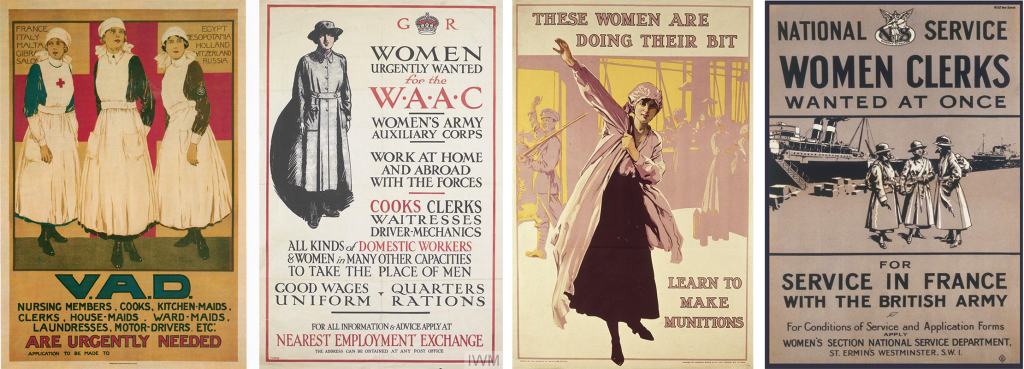War was declared on 28 July 1914. Crime writer Agatha Christie, who was just 24 at the time, wrote:
“Extraordinary rumours got about, rumours of that fantastic thing – War! But of course, that was only in the newspapers. No civilised nations went to war. There hadn’t been any war for years; there probably never would be again… It was all rumours – people working themselves up and saying it really looked ‘quite serious’ – speeches by politicians. And then suddenly one morning it had happened. England was at war.”
Agatha Christie: An Autobiography, 1977
Listen to this interview with Historian Professor Lucy Noakes. She talks to Daisy about how women were affected by the Great War, what life was like for women, and why their stories are still important today.
The War meant that life changed for everyone.
In 1900…
– 1,740,800 women were domestic servants
– 124,000 were teachers (mostly in nurseries and junior schools)
– 68,000 were nurses
– 212 were doctors (it was only recently possible to qualify as a doctor if you were a woman –and women only treated women & children
– 2 were architects
Before the war
– Only 24% of women were in paid employment. Most were expected to be managing the home and raising children. Marriage usually meant a woman had to leave her job.
– Women in employment would be earning about half of what men did. Female teachers earned 80% less than male teachers!
– Many women were seen as more delicate members of society – needing to be looked after.
– Women had fewer rights than men – they couldn’t vote or open their own bank account.
– Pretty much everything they owned before marriage became the property of their husband on marriage. They weren’t just giving up their name! Although this was starting to change…
– Laws assumed a man (their father or husband) would look after and take responsibility for them.
Once war broke out, women were called on to take up not only the positions left by the men who enlisted but also positions in new jobs like in munitions factories making bombs – this was dangerous work because of the daily exposure to toxic TNT and risk of explosions.
After long exposure to TNT, workers risked toxic jaundice – this dangerous substance seeped into their skin and would cause headaches, digestive troubles, and more. The explosive would turn the workers’ hair and skin yellow, which is how munitions workers gained the nickname ‘canaries’. In the next section on Women’s Stories, we will hear from a 17-year-old girl who worked in a munitions factory.
Information from: Women in England 1760-1914: A Social History by Susie Steinbach (2004) and History Learning Site.

Posters aimed at women during World War One, from the Imperial War Museum and National Archives.

